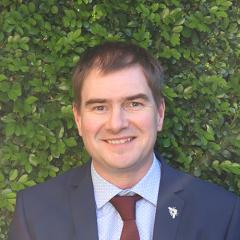Micro and nano plastics (MNPs) entering ecosystems due to coastal, industrial, and domestic activities, become a threat to the environment. Developing a reliable and fast MNPs synthesis method is vital for conducting quality experiments to understand the fate and behaviour of MNPs in the environment. The MNPs reference materials that are produced for instrument calibration purposes do not fit the criteria to mimic particles produced in nature. The initial scope of the research is on finding and developing a suitable methodology for producing synthetic MNPs in the laboratory environment. The release of wastewater produced during domestic laundering directly into sewers becomes a source of microplastics into wastewater treatment systems (WWTP), which eventually find their way into the aquatic systems. This closed-loop and cyclic process results in a continuous increase of MNPs loading into the wastewater treatment system. There is a lack of comprehensive studies on the removal efficiency of MNPs from the wastewater generated from domestic laundry. Hence, a reliable and efficient separation process is necessary to decrease the MNPs load.
Due to low density and hydrophobic properties, the foaming systems are seemly low-cost treatment systems for the removal of MNPs from domestic laundering wastewater. Although significant studies are available on microplastic removal through this technique, no clear explanation existed on the bubble-plastic particle adhesion and their transport phenomena in the foaming system. The overall aim of this research is to understand the application of foam flotation for the removal of micro and nano plastics from the MNPs contaminated water and develop the experimental conditions to improve the flotation performance.
Conference Abstracts
Karanam, K. Preparation of polystyrene micro and nano-plastic particles by solvent-dissolution-precipitation, 17th Pacific Polymer Conference (PPC17), Brisbane, Australia, 11-14 December 2022.
Research Outputs



